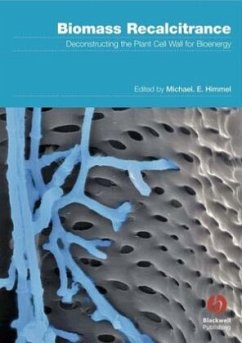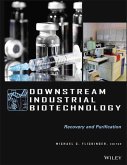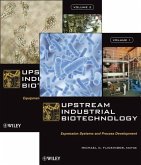Alternative and renewable fuels derived from lignocellulosic biomass offer a promising alternative to conventional energy sources, and provide energy security, economic growth, and environmental benefits. However, plant cell walls naturally resist decomposition from microbes and enzymes - this collective resistance is known as "biomass recalcitrance". Breakthrough technologies are needed to overcome barriers to developing cost-effective processes for converting biomass to fuels and chemicals.
This book examines the connection between biomass structure, ultrastructure, and composition, to resistance to enzymatic deconstruction, with the aim of discovering new cost-effective technologies for biorefineries. It contains chapters on topics extending from the highest levels of biorefinery design and biomass life-cycle analysis, to detailed aspects of plant cell wall structure, chemical treatments, enzymatic hydrolysis, and product fermentation options.
Biomass Recalcitrance is essential reading for researchers, process chemists and engineers working in biomass conversion, also plant scientists working in cell wall biology and plant biotechnology.
Hinweis: Dieser Artikel kann nur an eine deutsche Lieferadresse ausgeliefert werden.
This book examines the connection between biomass structure, ultrastructure, and composition, to resistance to enzymatic deconstruction, with the aim of discovering new cost-effective technologies for biorefineries. It contains chapters on topics extending from the highest levels of biorefinery design and biomass life-cycle analysis, to detailed aspects of plant cell wall structure, chemical treatments, enzymatic hydrolysis, and product fermentation options.
Biomass Recalcitrance is essential reading for researchers, process chemists and engineers working in biomass conversion, also plant scientists working in cell wall biology and plant biotechnology.
Hinweis: Dieser Artikel kann nur an eine deutsche Lieferadresse ausgeliefert werden.








